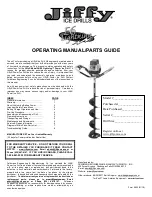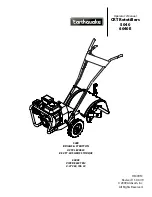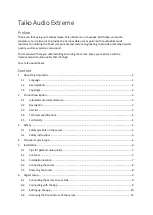
4
BÜCHI
Rotavapor
R-3000
2 Safety
The following applications in particular are prohibited:
•
Use in hazardous-duty or explosion-proof rooms.
•
Work involving overpressure.
•
Production or processing of explosives of all kinds.
•
Processing of hard samples (stones, soil samples, etc.)
that can cause the destruction of the evaporation flask.
•
The use of heating sources other than the water bath.
2.5 General hazards
General hazards arise from:
•
hot water in the heating bath.
•
solvents which can form peroxides.
•
solvents with low ignition, flash and/or explosion tempe-
ratures.
•
mixtures of unknown composition or with impurities.
•
combustible gases or solvent vapors in the direct vicinity
of the rotary evaporator.
•
damaged glassware.
•
electrostatic discharges when decanting solvents.
•
electrostatic charges when drying powders.
2.6 Safety measures
These operating instructions are to be considered a part of
the Rotavapor. They must always be kept at the point of use
so that operating personnel can consult them at any time.
This applies likewise to copies in other languages, which can
be ordered separately (see Chapter 1, Scope of delivery).
The customer shall notify the manufacturer immediately of
any incidents involving safety aspects while using of the
Rotavapor.
Personal safety items such as
goggles
and a
laboratory
coat
must be worn.
There is risk of scalding when replacing hot evaporation flasks.
This can be prevented by wearing suitable gloves.
The use of optional Büchi safety devices such as
GLAS coated glass components and safety shield will protect
the user in the event of an accident.
2.7 Modifications
Modifications are only permitted after consulting with the
manufacturer and obtaining his written consent.
Use only the recommended standard glass apparatus. Examine
glass components for any signs of damage before each use.





































